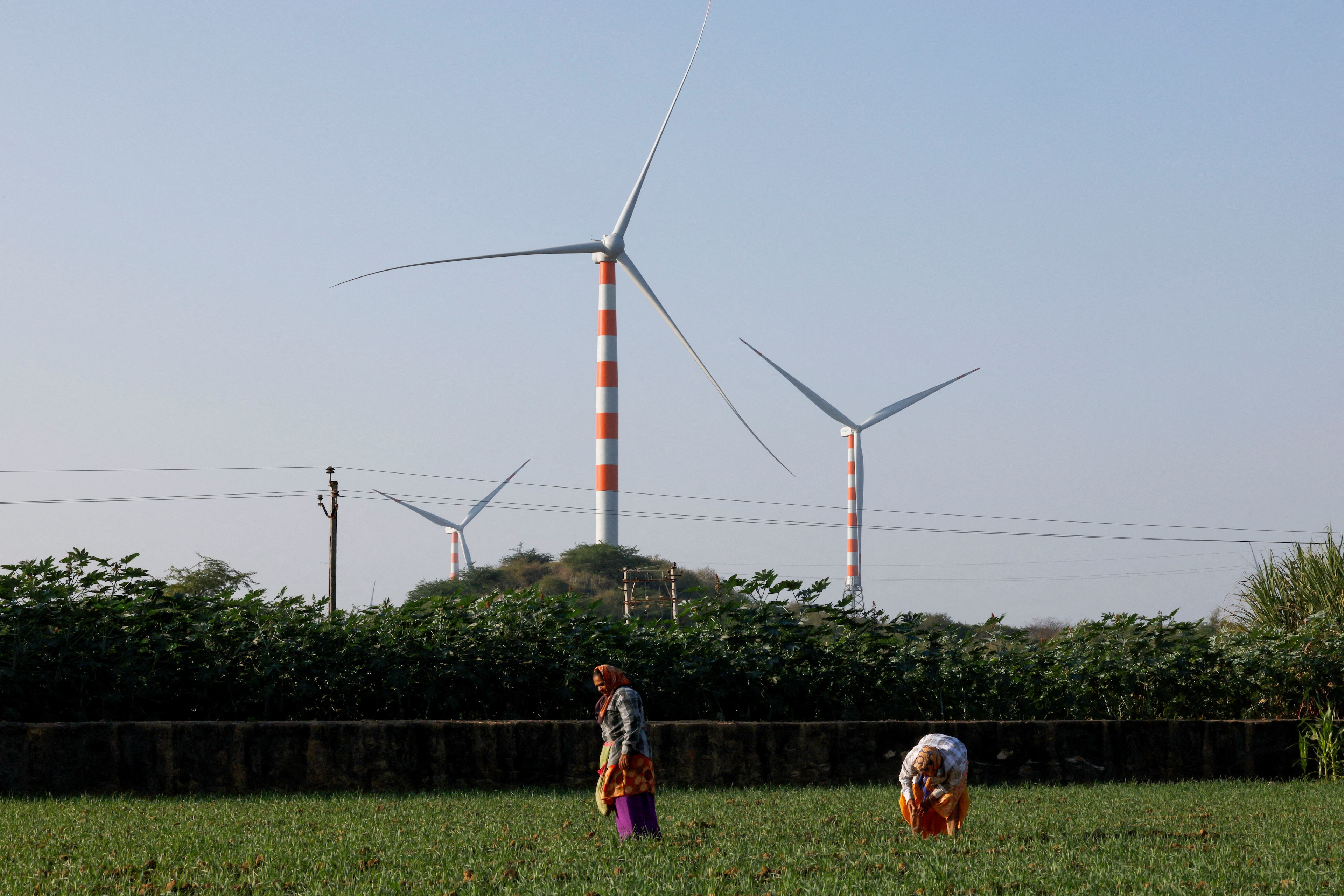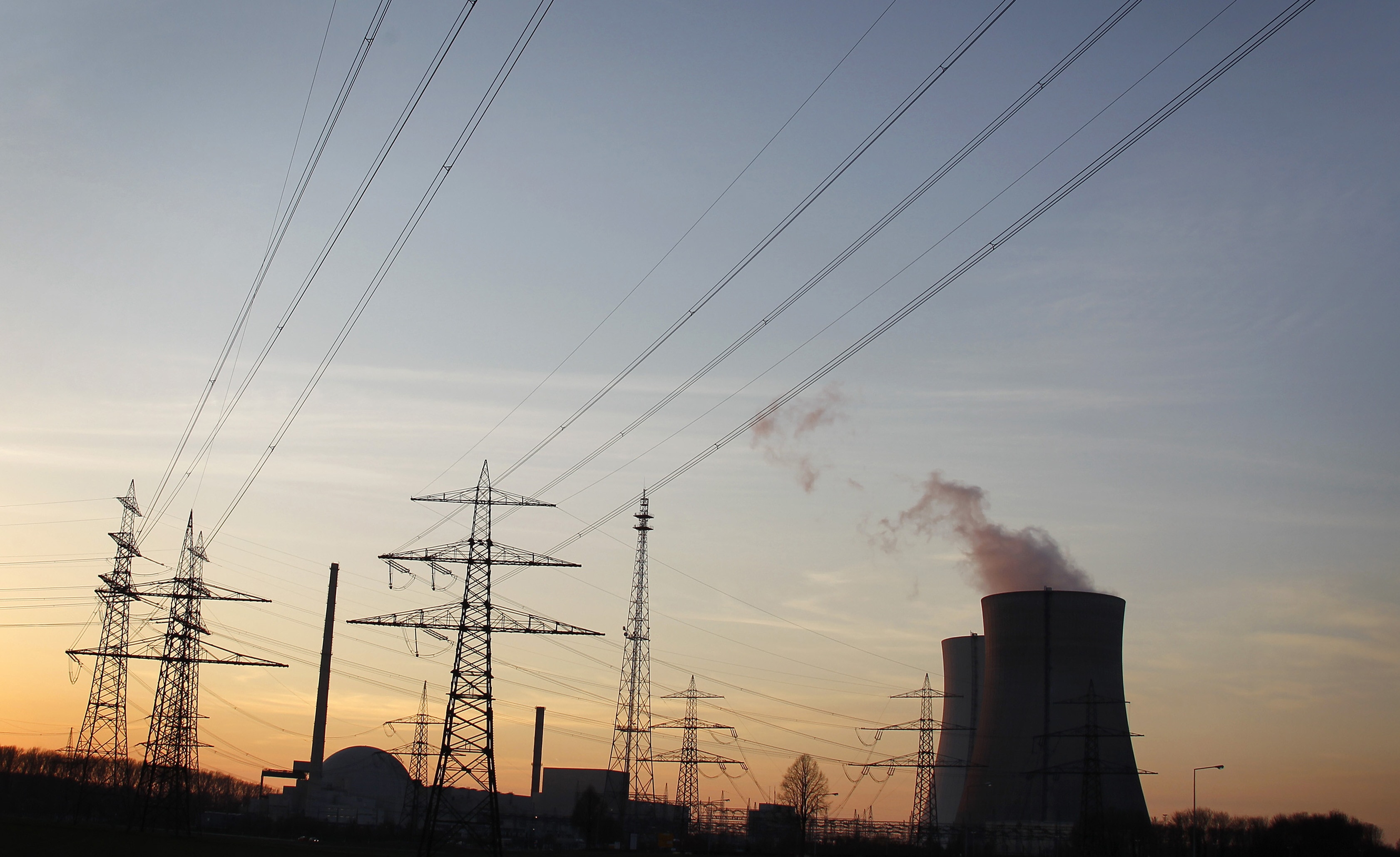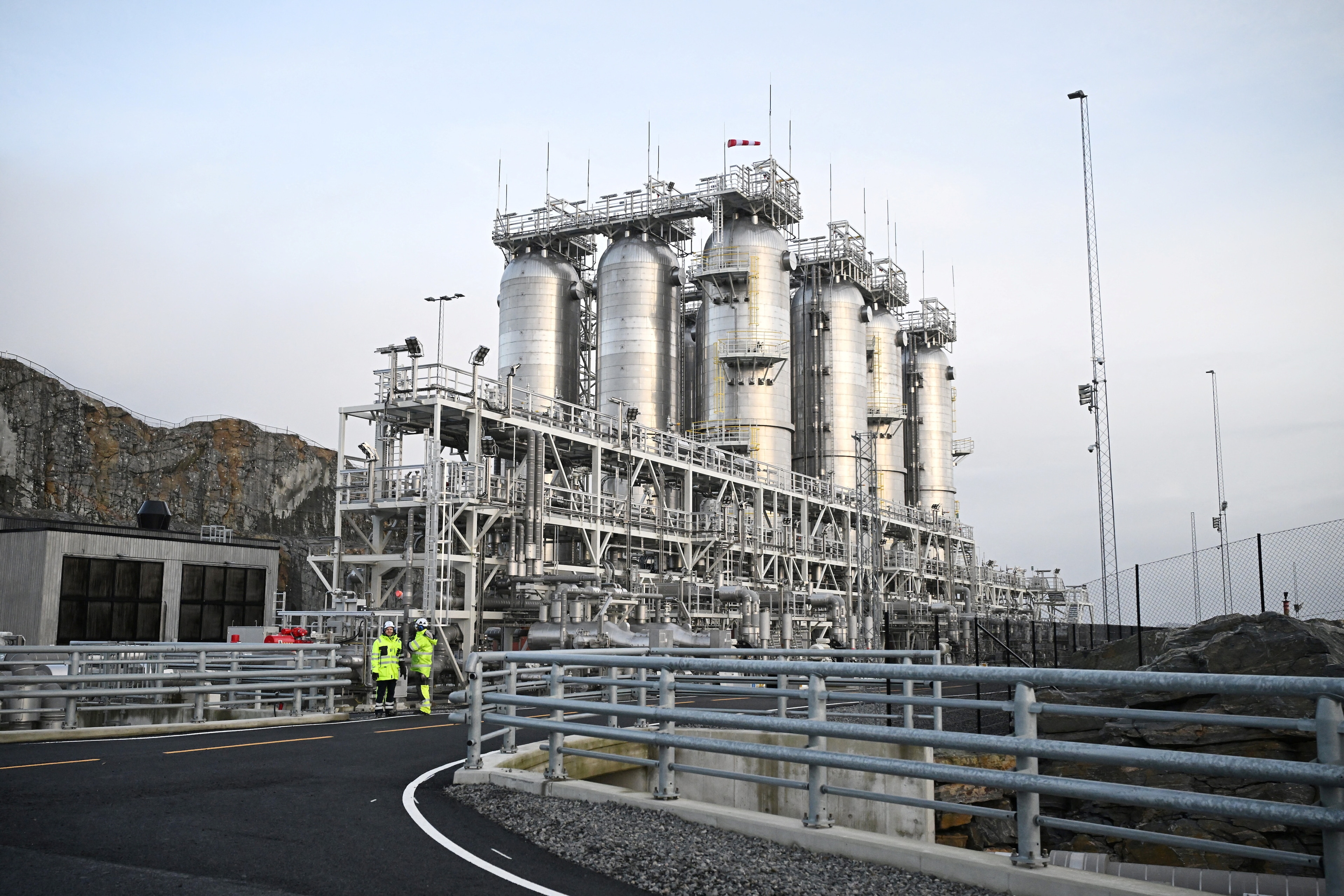Renewables set to surge and what you need to know about the global energy crisis this week

Top energy stories: New IEA report shows surge in renewables; UK to build new coal mine; Investments in green hydrogen.
Image: REUTERS/Pascal Rossignol
Roberto Bocca
Head, Centre for Energy and Materials; Member of the Executive Committee, World Economic ForumStay up to date:
Energy Transition
Listen to the article
- This weekly round-up brings you the latest on developments in the global energy sector.
- Top energy stories: New IEA report shows surge in renewables; UK to build new coal mine; Investments in green hydrogen.
- For more on the World Economic Forum’s work in the energy space, visit the Shaping the Future of Energy, Materials and Infrastructure Platform.
1. News in brief: Energy stories from around the world
The US government's first-ever sale of offshore wind development rights off the coast of California drew $757.1 million in bids – mainly from European companies.
The Australian government has agreed to underwrite new wind and solar farms backed by energy storage. It hopes to catalyze investment of at least A$10 billion ($6.7 billion) into the grid as coal-fired plants retire. The government has also announced plans to cap coal and gas prices for a year, in an effort to lower utility bills for households and businesses.
Hungary's parliament has approved extending the lifespan of four existing Russian-built reactors at the Paks nuclear power plant, greenlighting the government's plans of operating them for up to 20 years longer.
Norway will not issue licences for energy companies to explore for oil and gas in frontier areas during the life of the current parliament, which ends in 2025, its oil and energy minister told Reuters last month.
India has asked its state-run firms to increase their natural gas imports to prevent shortages in the coming months. It comes as Bloomberg reports that India's state-run NTPC plans to boost its nuclear energy capacity to help reduce emissions.
Oman says it has received significant interest for two green hydrogen concessions. The winning bids for the two blocks near the port of Duqm will be awarded early next year.
It comes as energy firm Orsted announced plans on 6 December to invest in a large-scale green hydrogen facility in Denmark.
Mexico will present a series of clean energy projects at the North American Leaders' Summit, scheduled for next month, Foreign Minister Marcelo Ebrard says.
The White House has launched its first standard on cutting carbon emissions from US federal buildings. The Federal Building Performance Standard requires federal agencies to cut energy use and electrify equipment and appliances to achieve zero emissions in 30% of their buildings by square footage by 2030.
Power shortages and cuts are expected to continue in South Africa, utility company Eskom has warned.
Proposed European Union rules aimed at tempering natural gas price spikes may actually jeopardize financial stability and need to be redesigned, the European Central Bank says.
The Hungarian government has abolished a fuel price cap. Reports suggest the lifting of the cap has prompted long queues at petrol stations.
2. New IEA report on global renewables
The International Energy Agency (IEA) has released its latest analysis of the global renewables sector, examining current policies and market developments. It looks ahead to 2027 and the deployment of renewable technology across electricity, transport and heat.
The report explores key developments and trends in the sector, from more ambitious renewables targets proposed by the European Union, to renewable capacity for hydrogen production, and the question of windfall profits.
The key takeaway? Renewable energy development is speeding up as countries look to boost their energy security in the face of the current crisis. The report predicts that the world will add as much renewable power in the next five years as it has in the previous 20.
Accept our marketing cookies to access this content.
These cookies are currently disabled in your browser.
3. Britain approves new coal mine
Britain has approved its first new deep coal mine in decades, to produce fuel for use in steelmaking. The Woodhouse Colliery, to be developed by West Cumbria Mining in northwest England, seeks to extract coking coal, which is used in the steel industry rather than for electricity generation. It is expected to create around 500 jobs.
The majority of the coal produced is expected to be exported to Europe.
"This coal will be used for the production of steel and would otherwise need to be imported. It will not be used for power generation," a spokesperson for the Department of Levelling Up, Housing and Communities said.
The plans have drawn criticism though, as opponents argue it will hinder climate targets. Paul Elkins, Professor of Resources and Environmental Policy at the UCL Institute for Sustainable Resources, said the mine does not make sense environmentally or economically.
"Approving it also trashes the UK’s reputation as a global leader on climate action and opens it up to well justified charges of hypocrisy – telling other countries to ditch coal while not doing so itself," he said.
4. More on climate change on Agenda
Improving energy security – and tackling the climate crisis – will require collaboration and the use of smart grids that are flexible and reactive, writes Christoph Schell, Chief Commercial Officer at Intel. Such grids will be key to integrating renewables effectively into energy supply.
For the world to get to net-zero, there needs to be significant government support for low-carbon forms of energy. But how can countries design clean energy subsidies that work?
Want to learn more about hydrogen and the clean energy transition? Read our explainer.
Don't miss any update on this topic
Create a free account and access your personalized content collection with our latest publications and analyses.
License and Republishing
World Economic Forum articles may be republished in accordance with the Creative Commons Attribution-NonCommercial-NoDerivatives 4.0 International Public License, and in accordance with our Terms of Use.
The views expressed in this article are those of the author alone and not the World Economic Forum.
Forum Stories newsletter
Bringing you weekly curated insights and analysis on the global issues that matter.
More on Energy TransitionSee all
Valentin Chomel and Jacques-Alexis Verrecchia
August 14, 2025
Gaurav Upadhyay and Labanya Prakash Jena
August 8, 2025
David Timis
August 8, 2025
Forum Stories
August 6, 2025
Marina Colombo and Lynn Kappes
August 6, 2025
Sverre Alvik
August 5, 2025






